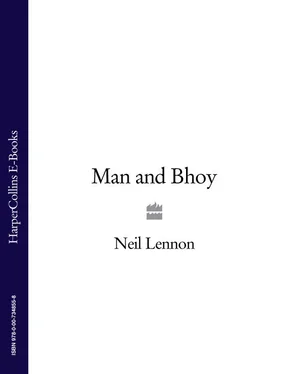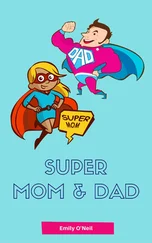1 ...7 8 9 11 12 13 ...19 I was still playing Gaelic football for St Paul’s and the Clan Na Gael club at this time, winning the Armagh Under-13 championship with the school.
I soon took and passed the exams which meant I could continue on to senior high school, in my case St Michael’s Grammar School in Lurgan. One of the great things about St Michael’s was that it was co-educational. Since it was a Catholic school run by a strict nun, any sort of contact between boys and girls was frowned upon, but that didn’t stop your hormones rampaging. Like every other teenage boy, I was awkward around the opposite sex and it would take me ages to pluck up the courage to talk to a girl or ask her for a dance at the occasional ‘hops’ held at the school or the local social club. I’ll confess now to having had a big crush on a very pretty girl of Italian extraction, Anita Cafolla. I must have carried a torch for her for a year or two when I was fourteen or fifteen, but nothing ever came of it and we went our separate ways with me moving to Motherwell and later Manchester.
Like everyone, I had my favourite teachers at school and one of the teachers who had considerable influence on me was Seamus Heffron, who taught me French at St Michael’s. More importantly, he was in charge of the school Gaelic football team. He was the kind of teacher you need in any school, the sort who encouraged young people to do their best at work and play, and who put in many unpaid hours looking after the team. Seamus has subsequently followed my football career closely, coming over to see me play at Leicester and Celtic, and he is in regular touch with my family and myself.
When I first attended St Michael’s, it became clear that I faced something of a problem, one that almost got me expelled from the school and nearly ended my career in soccer almost before it started. St Michael’s was a highly traditional school and preferred the Gaelic version of football, which of course I loved, but not as much as soccer. Schoolmatches were played on a Saturday morning which sadly was also the same time that Lurgan United, the boys club for which I then played, held their games.
At that point in my life I came up against a person who was very determined to get her own way. Sister Mary St Anne was the nun in charge of St Michael’s, and she was determined to uphold the school’s traditions.
One of those traditions was the cane. Anyone above a certain age will remember that corporal punishment was once routine in schools, the teacher’s weapon of choice being the tawse or the cane. Sister St Anne was one of those strict no-nonsense nuns who did not mind dishing out sentences but would send for a male teacher to administer the actual punishment.
I was a typical schoolboy, I suppose, and got in my fair share of scrapes and pranks, such as playing truant or ‘bunking’ as we called it, so in my time at St Michael’s I was caned perhaps two or three times.
The occasion I remember most was a beautiful sunny day when the attractions of a double period of biology could not compare with the farm which adjoined the school. After lunch, three or four of us decided to scale the wall and make our escape from school. I’ll name no names—for reading this will be the first time my own mother will know what I did, and I wouldn’t like to get anyone else into the trouble I’m going to get!
We had climbed a tree and were sunning ourselves when one of the teachers spotted us and came running over. We jumped down from the tree and unfortunately for one of the lads, he landed in a giant cowpat. Even worse for us was the fact that our escape route was sealed off by three other teachers. We were all hauled off to be caned, with the smell of cow dung accompanying us everywhere we went until my poor unfortunate classmate was sent home.
The caning ceremony was bizarre. You would go into Sister’s room, and there would be no sign of the cane at first. The weird thing was that she kept the cane hidden in a box behind a picture in her room. The box would be produced with great ceremony and the assistant headmaster or other teacher would take out the cane. On each occasion the sentence was the same—three strokes of the cane on each hand, which you placed one on top of the other to receive the stroke. I suppose the cane was supposed to be an encouragement of sorts, but if so, then it did not achieve its purpose as your hands were so traumatized that you couldn’t lift a pen or do any serious work for the rest of the day.
Tradition meant everything to Sister St Anne. As far as she was concerned, it was to be Gaelic football or no football at all. I, on the other hand, just could not envisage life without soccer. I was about fourteen, I was already in the school Gaelic football team, and was also playing for the local Clan Na Gael club. But I was doing so well with Lurgan United soccer club that my name was already in the books of several scouts from senior clubs across the water in Scotland and England. So I knew by then that I had a chance of playing football for a living and, more and more, that was what I wanted to do. But Sister St Anne decreed that I would play for the school Gaelic football team and that meant giving up Saturday morning soccer. Or so she thought.
The penalty for disobeying the order was simple—I would be expelled from St Michael’s. I was in tears at the thought—I had worked hard to pass the exams to get into St Michael’s and now I faced expulsion for playing football.
The annoying thing was that all these orders were relayed in public at school assembly. My sister Orla was in the sixth year and she confronted Sister about this before telling my parents.
My father was very angry when he and mother went to the school office. He pointed out that I had made a commitment to the soccer club and somehow he worked out a compromise with Sister. At that time it was close to the end of the soccer season, so I was able to carry on playing but had to switch to Gaelic as soon as the season ended, and in the meantime I played only in the important school matches.
I would not have liked to have left St Michael’s under a cloud. I loved my time there, and the standard of education was very high and academic achievement was not just demanded but expected. I was no swot, but there were some subjects which I did enjoy, mainly languages such as English literature and English language, Spanish, French and Irish Gaelic—I got ‘O’ levels in all of those. I passed seven ‘O’ levels in all, the others being religious studies and chemistry. I could have done better, but by then my mind was on other things, namely where I would start my football career.
The only other profession I considered was that of veterinary surgeon because I always loved animals. I still do, and have shares in several racehorses.
We always had cats or dogs in our house, and we also had a canary for years—one who never stopped singing! He was called Sweep, and the cat was not too impressed with his constant noise.
Perhaps if I had passed my biology ‘O’ level I might have carried on to study veterinary science, but I failed and that was the end of any thoughts of becoming a vet. To be honest, by that time I was already set on a career in football.
By the time I was fourteen I was on the fringes of the Northern Ireland schoolboy team. It was a very exciting period for me which also saw me widen my horizons a little.
For some reason of which I’m not aware, Lurgan Celtic had dropped their boys’ team but the people who ran it went off and formed Lurgan United which I joined, because it was really Lurgan Celtic by another name. At that time we had a rare crop of players and we were frequently watched by scouts from dozens of clubs in Britain, and also representatives of other more senior boys’ clubs in the area.
One of the best boys’ clubs in Armagh, indeed the whole of Northern Ireland, was Lisburn side Hillsborough. Its officials and players were all from the ‘other side’ of the divide, so when Gerry Taggart and I were asked to join them, I was a bit sceptical. I had plenty of friends who were Protestant and Unionist, but joining Hillsborough from Lurgan Celtic was something of a bridge crossing, as we would be the only two Catholics in the club. I need not have worried a jot. We were welcomed with open arms and in the five years I played for Hillsborough, nary a cross word was spoken about the religious and political problems in my town and country.
Читать дальше











